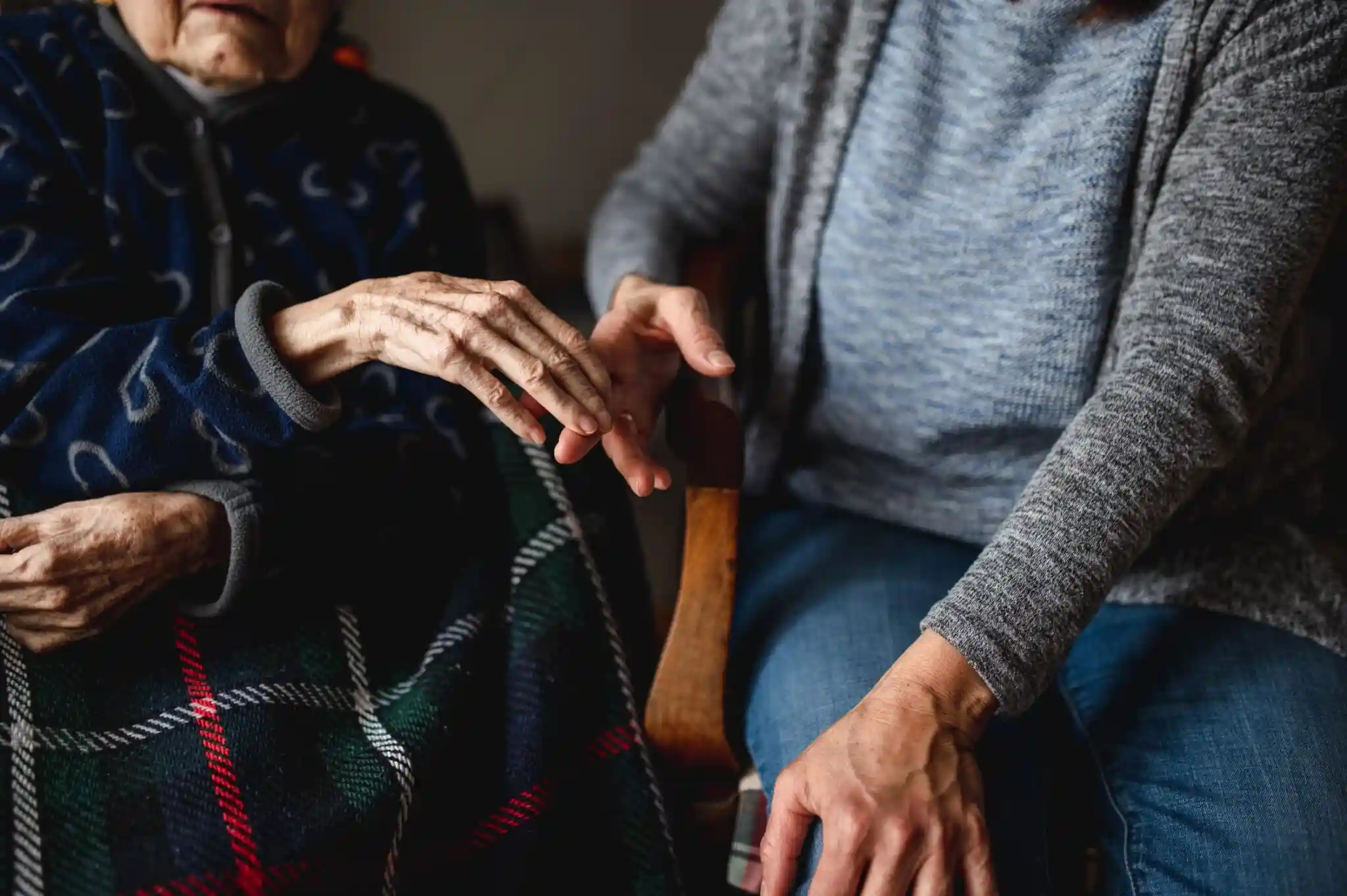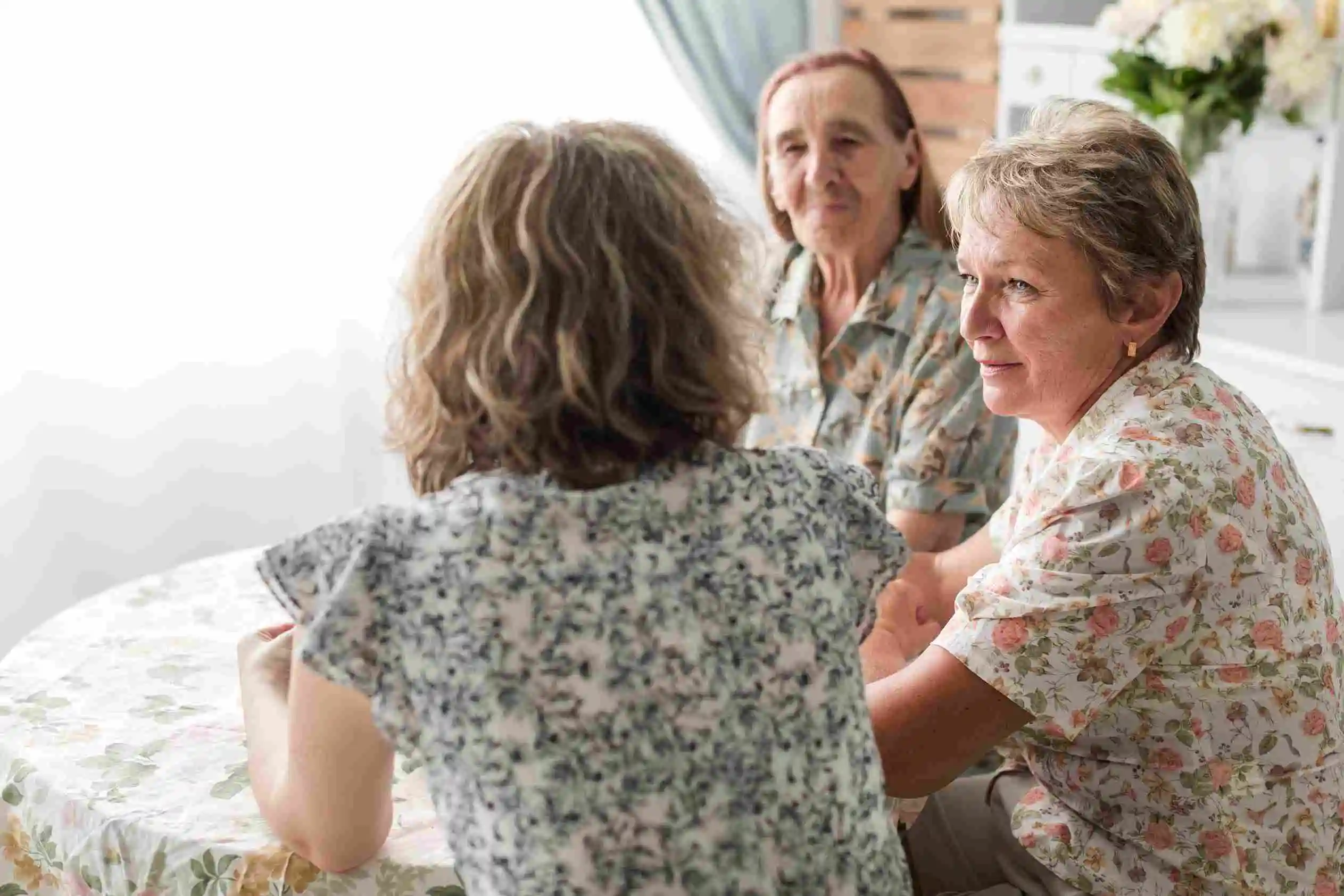In these stage 4 cancer final weeks, many families painfully and emotively live through this period of time when the condition of a loved one is going from bad to worse. With such times, cancer patients reveal more serious symptoms and require much more caring. Understanding what to expect helps a family give a person the best support while emotional preparation for them also starts. The emphasis during cancer end-of-life care is mainly on comfort and dignity. This, therefore, encompasses pain alleviation, the provision of comfort, and emotional support to patients so they may live out their remaining days in as much peace and comfort as possible.
Physical and Emotional Changes
Both the body and emotions go through drastic changes at an advanced stage of cancer, which is a very trying time not only for the patient but also for close family members. Knowing these changes will definitely help a relative or caregiver give more befitting care and emotional support to a loved one during this period.
Physical Changes
In the final days/weeks, breathing patterns may be different. Periods of Cheyne-Stokes respiration will occur very fast, shallow breaths followed by periods when the person stops breathing altogether. This is a normal response to dying but often is very disturbing for the family. Fatigue increases. The patient may sleep a lot, spend a great deal of time in bed, and may become less responsive as his energy decreases.
Another common change is a decrease in appetite: the body now requires less food and water, hence less interest in eating or drinking. This is natural, though difficult for caregivers to accept. A good approach would be to encourage small sips of water or comfort foods, but it is not necessary to force food intake.
Emotional Changes for the Patient
The final stages can be quite emotional for the cancer patient. Feelings of fear, sadness, and even anger may arise when faced with one's own mortality. Many might feel apprehensive about what the unknown has in store or perhaps even concerned about how their loved ones will cope once they are gone. Some will find comfort in life review; others may wish to withdraw emotionally and be left alone or not discuss their disease.
One of the most crucial things is emotional support. The ability to listen to them, offer soothing words, and sometimes just being there can mean so much to them. It is very important that they be allowed to express themselves without being judged and reassured that their feelings are normal.
Emotional Impact on the Family Caregiver
The family caregiver finds this period of time emotionally exhausting. Generally speaking, helplessness, grief, and feelings of anticipatory loss accompany the observation of a loved one in the terminal phases of cancer. Caregivers may feel guilt for not doing enough or even need breaks; either way, these emotions and actions are normal in such demanding circumstances. More importantly, caregivers at this stage must recognize their own emotional needs and seek support when necessary.
Counseling services and support groups prove quite beneficial for a caregiver to turn to. These are avenues where they can share experiences with others who understand what they are going through and are, therefore, some sources of emotional relief from their responsibilities. The cancer support group might assist the caregiver in working his/her feelings out and exploring some coping strategies for those times when his/her strength is required to continue in this care.
The Importance of Support
The struggle of the patients and their families during the terminal stages of cancer is indeed horrific; both physically and psychologically, it has its own sets of torments. On the other hand, the search for counselling services and cancer support groups could bring in a lot of differences and help everyone concerned deal with the problem much more confidently. Whether relating to learning how to navigate a stormy emotional condition or understanding physical signs such as altered breathing patterns, supportive networks can be a source of great guidance and solace in this really rough time.
The Role of Family and Carers

The family carer's role becomes central in the care and comfort of a cancer patient in the final weeks of life. Support at this time is often physically and emotionally exhausting, though highly rewarding. Carers can provide a sense of familiarity and love that might make patients feel secure and cared for during the terminal stages of their disease.
Practical Tips for Physical Comfort
Attending to physical needs, family carers can relieve the patient's discomfort. To prevent bedsores, painful lying in one position for a long period should be avoided by the frequent repositioning of the patient. One can also offer gentle massages, use soft pillows, and adjust blankets to ease discomfort.
Also, small aids such as providing sips of water, wetting the patient's lips, and keeping them clean enhance the comfort of the client. Also, one needs to be aware of the breathing patterns and should keep the healthcare professionals informed in order to guide how to respond to changes in breathing pattern.
Emotional Support
Of equal importance is the emotional support given. The carers can offer a listening ear, a comforting presence, or sit in silence beside the patient. All patients are unique and have their ways; some want to talk about their life and say goodbyes, others may remain silent. It is the sensitivity to the emotional needs of the patient and the empathetic understanding in response that can bring immense comfort to the patient.
Family carers should also make time to reassure the patient of their love and appreciation. While painful conversations these can be healing conversations for the patient and the family as well.
The Importance of Professional Support
While family carers play a vital role, there is equally a need for support by healthcare professionals. Doctors, nurses, and the hospice team will work together to ensure that the patient remains as comfortable as possible, offering expert advice on symptom management, medication, and any other needs the patient may have. The hospice palliative care team also plays an important role in supporting families through the final stages, ensuring physical and emotional care for the patient is available while offering support to the family during this time.
Specialized hospice palliative teams are specially trained to meet the specific needs that a patient will have during his or her terminal stages. They can facilitate pain management, ensure medication is provided, and reassure through spiritual or emotional support. In this way, the patient will live with dignity and comfort in his or her last hours, reducing the burden on family carers by offering professional counseling and guidance.
Working Together
A circle of care would be vast by collaboration between family carers and healthcare professionals for the patient during his or her final weeks. Since some of the complex medical areas in patient care would be left to hospice care, the family members can devote themselves to comforting them emotionally. Together, families and professionals could work on providing compassionate, comfortable, dignified care on the patient's journey through his or her final days.
Stages of Death and Dying from Cancer
In the final stages of terminal cancer, the body begins to shut down in predictable ways, signaling that the end of life is approaching. While every patient’s journey is unique, there are common signs that indicate the body is entering its final phase.
- Altered Breathing Patterns
One of the most indicative indicators of stage 4 cancer is breathing patterns. He could exhibit inappropriate or labored breathing, which is referred to as Cheyne-Stokes respiration. The breathing goes from fast to slow and then stops for a period of time. This can be quite confusing to see in a family member, but this is considered normal as the body declines. Specialized health professional teams are trained in symptom management and can allow the patient to stay comfortable.
- Mottling of the Skin
Skin color changes with decreased circulation. Mottling of the skin usually appears as purple or blotchy patches and generally starts showing on the hands and feet. This just means that the body is shunting blood flow to major organs, which is a fairly common indicator that death is near.
- Incontinence and Loss of Control
In the last stages of the disease, patients may experience Incontinence, or a loss of control over the bladder or the bowels. As muscles deteriorate, the body no longer functions as it use to. The family caregivers are able to support by comforting and keeping the patient clean, using protective bedding, and in collaboration with healthcare professionals, manage these symptoms.
- Confusion and Loss of Consciousness
Patients often become disoriented or confused as the body shuts down. They may have trouble recognizing loved ones or talking in unintelligible ways. Increased sleepiness accompanies the cognitive decline and results in periods of unconsciousness as the patient approaches the end. Finally, most patients drift off into a coma or deep sleep from which they will not awaken.
- Final Signs of Death
Taken all together, these signs - altered breathing patterns, Mottling of the Skin, Incontinence, confusion, and loss of consciousness- indicate that the body is in its final stages. While this can be quite a distressing time for family members, knowing these signs may help prepare them for what's to come and ensure the patient is as comfortable as possible in his last moments.
Hospice Care and Eligibility

When a loved one with terminal cancer reaches a stage beyond which curative treatment is no longer effective, hospice care is an important option to consider. This kind of care replaces treatments for comfort and quality of life, offering emotional support during the terminal phase of illness. Understanding the criteria for hospice eligibility will help families get appropriate care for their loved ones at the right time.
Hospice Eligibility
In general, the patients can be considered eligible for hospice care upon meeting certain qualifications. This includes a terminal diagnosis where a patient is usually estimated to have a life expectancy of six months or less, solely based upon the judgment of the physician. In cases of cancer, this is normally considered when the disease has reached stage 4, and there are no more curative treatment options available. This means it is important to ensure that discussions with healthcare providers determine when the time is right to consider hospice so that the care given will focus on comfort and dignity.
Support Systems Provided by Hospice
Hospice provides varied support systems, from the patient to the family. For the cancer patient, hospice incorporates pain management so that symptoms, which may include discomfort and difficulty breathing, are well-managed. It is here that the intention is to enable the patient to live out their remaining days with ease. This also includes emotional and spiritual support in order to help the patients deal with the emotional aspects of their illness.
For families, hospice offers counselling and guidance on emotional and practical issues pertaining to the care of a loved one with a terminal illness. Hospice teams work together with family caregivers, providing respite care and additional support when needed. They work on honouring both the patient and their family members in ways that preserve patient dignity throughout the dying process.
Hospice is not just for the patient; it's an entire system of merciful care that sustains the whole family, ensuring that the last weeks of the patient are peaceful, comfortable, and comprehensible.
Finding Comfort and Support in the Final Weeks of Stage 4 Cancer
These changes are associated with breathing, fatigue, loss of appetite, and emotional changes in the last days with their loved ones. In these last weeks of stage 4 cancer, patients will undergo physical changes of altered breathing, fatigue, and loss of appetite, as well as emotional changes while approaching the last days of their lives. The role of the family caregivers is very significant in this aspect, bringing physical comfort and emotional support. Healthcare professionals and hospice teams may also advise and care for them valuably.
The focus in all of this needs to be directed toward the comfort, dignity, and compassionate care of the patient. Cooperating in harmony with hospice teams and relying on support systems can help make this final journey a path of peace and comfort for loved ones.

















.webp)




.webp)


